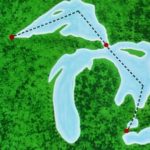What is the risk of earthquakes in Duluth?
Does anyone know about the seismic issues in this area? What kind of risk are we at for an earthquake? If one occurred in Lake Superior, could a tsunami be generated? If so, how big? Any other relevant facts or thoughts related to this?
Major earthquakes and shifts in weather patterns seem to be the norm these days. Does this align with anyone’s scientific knowledge or religious beliefs associated with the “End Times”? And, if you think it is the end times, is Duluth a good place to be? I sure think it is.
Recommended Links:
Leave a Comment
Only registered members can post a comment , Login / Register Here












32 Comments
baci
about 14 years agoTimK
about 14 years agoBryGuy
about 14 years agoBarrett Chase
about 14 years agolojasmo
about 14 years agoflateric
about 14 years agoJude
about 14 years agochadp
about 14 years agoKarasu
about 14 years agopH
about 14 years agoadam
about 14 years agomarkryan
about 14 years agowildgoose
about 14 years agoThe Big E
about 14 years agoTamara
about 14 years agoBarrett Chase
about 14 years agowildgoose
about 14 years agoTamara
about 14 years agodavids
about 14 years agowoodtick
about 14 years agokindaembarrassed
about 14 years agoRyan Huggett
about 14 years agoCelestina
about 14 years agoLord Phosphorus
about 14 years agoBarrett Chase
about 14 years agoadam
about 14 years agoTerry G.
about 14 years agoZoomerang
about 14 years agoadam
about 14 years agozra
about 14 years agozra
about 14 years agoJude
about 14 years ago